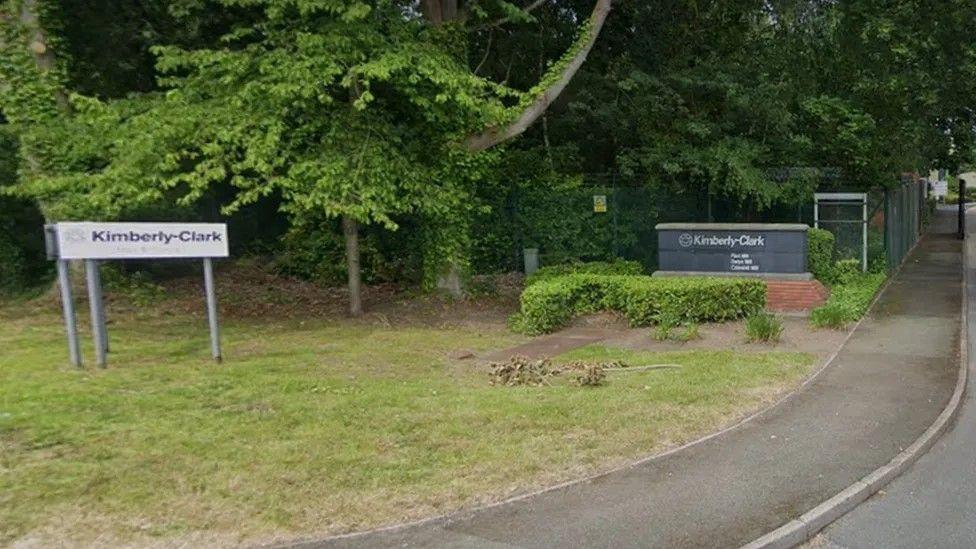Hundreds of jobs at risk at wet wipe factory

The factory in Flint may have to close due to the UK government's ban on plastic in wet wipes
- Published
Hundreds of jobs are at risk after a nappies and wet wipes manufacturer announced it is considering closing one of its sites.
Kimberly-Clark said the UK government's deadline to remove plastic from wet wipes by mid-2026 "significantly limits" its ability to adapt its processes in time, meaning it may "no longer be viable" to keep its site running in Flint, Flintshire.
The manufacturer said phasing out plastics from its baby wipes had "long been part" of its sustainability plans.
The UK government announced new legislation, external to ban wet wipes containing plastic in April 2024.
Around 220 people are employed at the factory which makes a range of paper products, including Huggies nappies.
If the closure goes ahead, Kimberly-Clark said the site will stay operational until 2025, and that supporting its staff through the "complex situation" is its "top priority".
It said it had already removed a significant amount of plastic from its products.
A spokesperson said: "Most of our baby wipes use a proprietary technology with 70% natural fibres and 30% plastic added to provide the necessary strength to clean and care for babies' skin properly.
"However, we're unable to meet the UK government's deadline of mid-2026 as it significantly limits our ability to adapt our consumer manufacturing processes in Flint in time, which means it may no longer be viable to keep our sites operational."
The UK government said the ban would reduce plastic and microplastic pollution and "reduce the volume of microplastics entering wastewater treatment sites when wrongly flushed".
The Welsh government, which proposed a similar ban before the UK government announced its legislation, said the news was "disappointing and distressing" for Kimberly-Clark staff.
A spokesman said: "Without wishing to pre-judge the outcome of the consultation, our focus is on supporting those who may be affected and supporting them into alterative local employment."